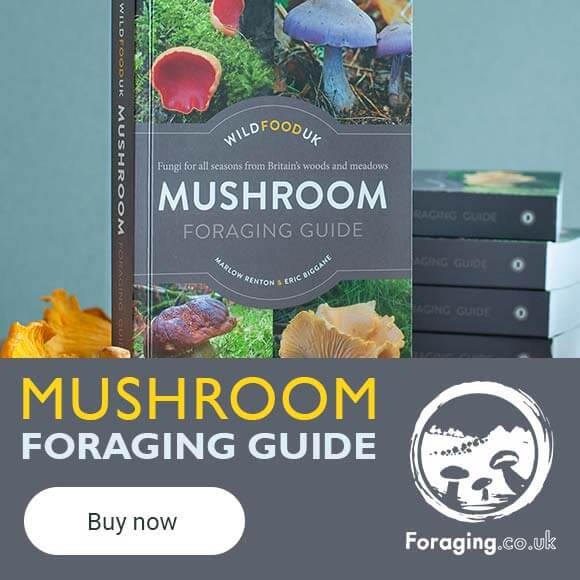Three-Cornered Leek
An invasive species brought over to the UK from the Mediterranean, it is an offence under Schedule 9 of the Wildlife and Countryside Act in England and Wales to plant or otherwise cause to grow this species in the wild.
| Hedgerow Type | |
| Common Names | Three-Cornered Leek, Snowbell |
| Scientific Name | Allium triquetrum |
| Season Start | Jan |
| Season End | Jan |
Leaves
Long, thin and green which if looked at in profile is a very shallow ‘V’ shape. The leaf here is showing the underside.
Flowers
Hanging in clusters very much like a white bluebells with six petals, each with a green stripe, and can flower at almost any time of year, sometimes twice a year.
Stem
The flower stem is like the leaves but more triangular in profile than the leaves, hence the common name, Three-Cornered Leek.
Possible Confusion
Few-Flowered Garlic, pictured, is very similar but has plain white petals and develops bulbils after the flowers.
Snowdrops, young bluebells, young daffodils or some lilies but none of these smell of garlic or onion.
Smell
Garlic/oniony.
Taste
A bit like spring onion or baby leeks or chives.
Frequency
Fairly uncommon but prolific where established and spreading fast.
Collecting
All of the plant is edible. The young plants can be uprooted when found in profusion and treated as baby leeks or spring onion, the leaves and flowers can be used in salads or the leaves in soups or stews, the more mature onion like roots can be used as onion or garlic.
Medicinal Uses
All the Alliums are good for high blood pressure in varying degrees.
Other Facts
The juice has been reported as being used as a moth and other insect repellent.



 (102 votes, average: 3.68 out of 5)
(102 votes, average: 3.68 out of 5)



























53 comments for Three-Cornered Leek
The season dates have been reversed. The season for three-cornered leeks starts in October and ends in March.
Hi Annette, I find it all year round except for Summer in some places, only Spring in others and like you Autumn/Winter in the odd place.
Here in New Malden, uk it arrived in April.
Was wondering what this flower was in my garden. Not had it before. I bought a large bag of wild bird seed last year and they kept throwing out some of the seeds. Now this year I have this plant growing in profusion. It’s very pretty but should I dig it out when not in flower. I don’t really want it to take over the garden.
It can be very invasive so I’d keep getting rid of it and eating it if I were you. It will probably come back in some unexpected places anyway.
My garden has loads and it’s near impossible to eradicate. Found out it was edible last year and have been eating it ever since – even froze some to use as chives over the window. What a bonus this year with Covid Lockdown!
I have a wild bit of garden where the three cornered leek looks great. Now however it’s growing in places I don’t want it. I have tried to dig it out but it seems impossible to get on top of it. I’ve tried weed killer too but it doesn’t want to die. What can I do?
I’m afraid it is very hard to get rid of, all you can do is eat as much as you can.
I wouldn’t eat it anymore if you have put weed killer in the soil. That’s toxic now.
Eat it to oblivion. You know the saying the harder they come the harder they fall. You see those little suckers just come up with a great recipe and fo them in.
I also have been hit by the allium. My attempt get rid of it: – I have made a pond with planks and plastic sheet. Spade dig 15 by 15 by 15cm sods with the plant in the middle. Keep digging the sods and putting them in the pond. Its 4 weeks in and the satellite bulbs (pea size) are still very hard. But I am a persistent person.
I am Iranian and the indigenous people have long used this plant along with food. It was interesting to me that you also know this plant.
Hi Marzie, thanks for your comment. This is a plant used by gardeners in the UK because of its beautiful flowers, but quickly became invasive and spread everywhere. It is tasty and we use other native plants of the same family, so naturally we started eating this one too. We would love to hear about how you use this plant in Iran, there is even one person asking in the comments below.
You might also want to check Comon Hogweed on our guide, I believe you call the seeds “golpar” and it’s very popular in youir cuisine – would be great to hear how you use it. Kind regards
I planted 10 bulbs of this allium about thirty-five years ago under a hedge beside my drive way. They have spread to about 90cm x 60cm and are not really invasive. They have to compete with bluebells and other bulbs, grass and wildflowers so they are probably growing where they should. The flowers are lovely in cream cheese and the leaves is salads and sauces.
They are a tasty edible but in the correct conditions they can take over large areas. They are on Schedule 9 of the Wildlife and Countryside Act.
http://www.gov.uk/government/publications/preventing-the-release-into-the-wild-of-certain-plants-and-animals-guidance
I can confirm they are next to impossible to get rid of!
Absolutely over run with the stuff here in Bournemouth on near Coy Pond. The air smelled very oniony tonight!
I’m overrun with it, I have just spent the day removing what I can and taking quite a lot of top soil with it and I save no doubt it will appear next year! Tiny bulbs everywhere..
I see lots down by the Thames here in Chiswick. Is it safe to eat after it’s been drenched daily by the tides?
I’m not really sure I’m afraid, does anybody else know?
Obviously can’t drown it! Consider contacting Thames Water for last testing in the area, I wash all fruit and veg before consumption, especially if being eaten raw!
Would you drink the water at Chiswick? That’s your answer.
Yes eat as much as you can to get rid of it it comes up in paths and everywhere. I have been digging them up and also the top soil to get rid of them taken over one of my borders on the next one now as also spread on thr grass. And has taken over a fairly large area of that. Apparently you can eat eevery bit of it so i may start doing that to.
My garden is over run with it 🙁 I have spent a few weekends during the lockdown sieving the areas and removing the bulbs, back breaking but fingers crossed the hard work will enable me to keep it under control and eventually get rid of it completely or just keep some in a pot where it can’t spread.
I have them dotted about in both my front and back garden in South London as have many of my neighbours on my side of the road (but interestingly none on the other side). I spotted some in the Chelsea Physic Garden and asked a gardener how they controlled it. He said never dig it out as the tiny thread-like bulbs will spread invisibly. Best to control it by removing leaves so it cannot thrive, and flowers before they flop over and form new bulbs and plants. Mine do seem to be diminishing in number by following this method. Incidentally my Chinese daughter in law enthusiastically gathers them up by the armful to eat. They are expensive to buy in Chinatown.
Christmas Day 2020
Discovered plenty of it growing in gardens and on the roadside close to the church in Kildysart,Co.Clare(Ireland).Have seen it there before.It seems to bloom very early there.
Spotted a single Winter Heliotrope in the midst of them.
Hiya! I live on St Martin’s, Isles of Scilly and the Three-cornered Leeks are prolific here and in flower now in January. I have just made some soup using this and some Sea Beet. Would it please be possible to have more details on the medicinal/health uses of the plant and some data about the nutrition of the plant? The soup is delicious by the way. Thanks and all the best.
I’m Bournemouth way too @Jenny but more Wimborne way and we’re overrun with it in the green spaces! Made some absolutely DELICIOUS pesto – just grabbed a handful of the leaves, well washed and dried and blitzed up with the standard pesto ingredients (toasted nuts, oil, hard cheese and something acidic). Getting a hold on an invasive species one recipe at a time!!
Our ‘child friendly ‘ garden (meadow grass lawn, trees and flowering shrubs in borders plus bluebells, poppies and daffodils in Springtime) is now over run with this allium.(We made a fatal error last year, digging out the bulbs.)Our local gardener has advised us to kill everything off with products available online.However, it will take 7 years to complete.
Careful. I would steer clear of herbicides if you want your garden to stay child-friendly (or to be able grow anything edible in the future). As an aside- I had a well meaning flatmate put rat poison on my tomato patch which marked an abrupt end to that food garden 🙁
Why was digging out the bulbs not the right thing to do?
The tiny bulbs are microscopic and you leave the ones not seen behind in the soil. I have been taking off the tops as they come up and flower stems to try and control mine.
A gardener friend gave me two small bunches to put on some bare earth below some holly and japanese quince – if I use in cooking and keep within a two foot square will I be able to keep under control, as near a bank of primroses, and wouldn’t want it to run riot?
Three Cornered Leek is invasive but with strict and careful management you should be able to grow it in your garden.
I planted some in a corner of my garden 25 years ago beside Strangford Lough,my sister lives there now and her lawn has disappeared under waves of TCL.dug it out is my advice.
Thank you for the help identifying this plant. It has mystified me what it was as it has managed to grow up and flower in profusion between paving slabs on our patio, and I couldn’t see how a plant that looked like from a bulb could have done that! It may have grown from a small patch of what I thought were bluebells on the other side of the garden somehow! It is very pretty but I will know I can give it rough treatment now (eat it!)
I’m interested what Iranian use the plant for in their cooking?
I’m afraid we don’t know ourselves, will have to ask directly to the Iranian. But there seems to be one above in the comments! Hopefully will read your inquiry and share with us
Will removing the flowers help stop it spreading? It’s very pretty but I have TOO MUCH of it!
I think the bulbs spread in the ground – at least digging the whole clumps up is needed I’d say.
I’m trying this at the moment. My garden is absolutely covered. Last summer I spent weeks digging it up and then pouring boiling water over the soil. In the two small areas where I was really thorough, it has reduced considerably. However, I couldn’t use that method in the areas where it was interspersed with other plants! Those areas are still pretty bad. This year, as we’re doing building works and the garden is relatively inaccessible I’m just pulling off as many flowers and leaves as poss in the hope that it will be better than nothing!
This has grown (overgrown!) in my borders over the last two years – finally researched and found it! Am digging it up patch by patch – will a couple of years of composting be enough to decompose it? Also, for cooking, can it be used like onions, ie general flavouring etc?
I’m not sure about the composting but it can be used instead of onions, garlic or chives.
Now found naturalised in long grass in small parks in Western Province of South Africa , Cape Town , which has Mediterranean climate with Winter rain.
This is the first time I have noticed this pretty alien found in the same areas as Snowdrops.
My 3CL is coming back now in September.
I have it in a Belfast sink alongside proper garlic 🧄.
Is it strange for it to be coming back at this time of year?
Three Cornered Leek can often have two flushes a year, I find it flowering around Christmas time and Summer in Devon.
I have it on my property in SW Oregon. The locals call it a ramp. If I am diligent about scraping the tops with a stirrup hoe and digging up clumps and composting then I can save room in the garden for other things. I dug up half a bushel yesterday and am thinking about pickling them, thus the internet search that led me here.
oh good to know that it can be used for a pesto (like wild garlic). and to know that the best way to keep it under control is to pull off the leaves and not let it flower in the extension into an area i’d prefer it not to be in.
I have something which look just like the pictures of Three Cornered Leek, tall, but it has edible onion like bulbils like few flowered Garlic.
Is this a hybrid? Or am I misidentifying this?
There are a few Alliums that produce bulbils, the most common and fairly tall being Rosy Garlic and Canadian Garlic.
The badgers from the next-door garden, here in Birmingham, seem to like them. They have destroyed a patch of garden which was overrun with these three-cornered leeks, and so far at present there are not many left. (something to do with inulin, according to my neighbour!) though I must admit I would rather have hedgehogs instead of the destructive badgers.
Hi, very interesting. I bought the bulbs for Aesthetic reasons, but very pleased to know it is possible to cook with them. Having read all the comments about invasive character of the alliums I am however a bit sceptical if I shall introduce them to my garden at all. Can they be contained by growing them in a wooden barrel? Thanks
They can be put in barrels or pots which help slow the spread but they are very invasive and will escape. Our native wild garlic is invasive but not as much as three cornered leek. There should be some wild garlic or three cornered leek growing somewhere near you which you can harvest instead of potentially allowing three cornered leek to spread to the wild.